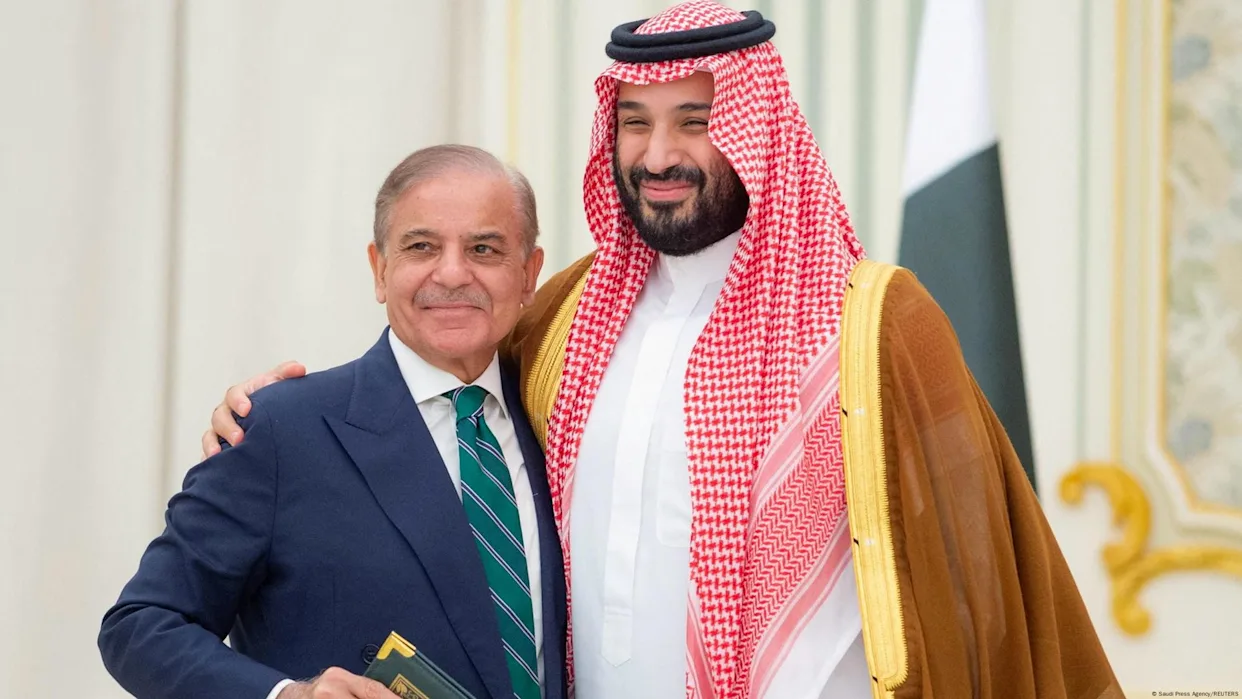
In September 2025, Pakistan and Saudi Arabia signed a Strategic Mutual Defense Agreement (SMDA). This pact says that if one of them is attacked, it will be treated as an attack on both. It also opens doors for closer military training, weapons cooperation, and stronger security coordination. The deal is historic, but many people are now asking an important question: Will this increase violence in South Asia?
Why the Deal Matters
Pakistan has long been an ally of Saudi Arabia, not only because of religion but also due to military and economic ties. Saudi Arabia depends on Pakistan’s large, experienced army, while Pakistan benefits from Saudi oil, investments, and financial support. By signing this defense deal, both countries have formalized what was already a close relationship.
But timing is important. The Middle East is going through big changes, and global powers like the U.S. are not as active in providing security guarantees. For Saudi Arabia, partnering with Pakistan is a way to feel safer. For Pakistan, this is a chance to show itself as a serious regional player.
Could Violence Increase in South Asia?
Some experts fear this deal could bring more instability to South Asia. Here’s why:
- India’s Reaction
India and Pakistan already have a tense relationship. A defense deal with Saudi Arabia might make India worry about Pakistan gaining more military strength or international support. This could increase mistrust and lead to an arms race. - Regional Balance of Power
South Asia is very sensitive to shifts in alliances. If Pakistan and Saudi Arabia move closer, other countries—like India, Iran, or even China—might change their strategies to protect their own interests. Sometimes, these moves lead to new rivalries or conflicts. - Risk of Misuse
If either country uses the deal as a way to flex power or take aggressive actions, tensions could rise quickly. For example, if Pakistan feels too confident because of Saudi backing, it might take a tougher stance against India.
Why It Might Not Increase Violence
On the other hand, the deal could also bring more stability:
- Deterrence: When two countries agree to defend each other, it can actually prevent wars. Enemies might think twice before attacking if they know they will face not one but two armies.
- Formal Rules: By putting their relationship into an official agreement, both Pakistan and Saudi Arabia may behave more responsibly. Instead of acting unpredictably, they may rely on structured cooperation.
- Focus on Defense, Not Attack: The pact is written around mutual defense—responding to aggression, not starting it. This could help keep things balanced.
The Road Ahead
The truth is, whether violence increases or not depends on how Pakistan and Saudi Arabia use this agreement. If they see it as a shield for safety, it could reduce the chances of war. But if it becomes a tool for showing military power, it might raise tensions in South Asia and beyond.
For now, the world is watching closely. South Asia has always been a delicate region where small moves can have big consequences. The Pakistan–Saudi defense deal is not automatically a path to violence, but it is a powerful change that needs careful handling.


